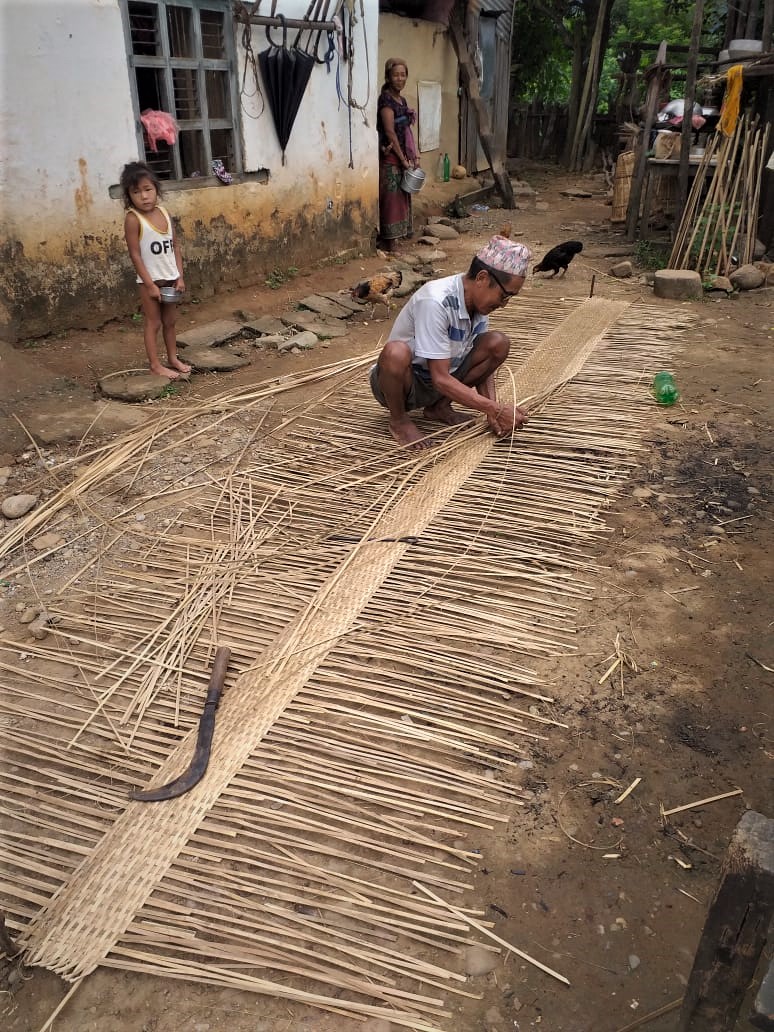
Agriculture in rural part of Nepal is traditional, which depends mainly on Indigenous Traditional Knowledge (ITK) that has been acquired by people from their ancestors. ITKs are usually followed by the people in day to day life, may it be in agriculture, animal husbandry, seed/grain conservation or storage, medicines, food, etc. It has been a part of their culture itself.
Small-holder farmers possess small land holdings. The produce is used mainly for household consumption and planting for next year. Therefore, the role of indigenous storage structures is important, as most of the farm produce are stored at HH level.
Due to the heavy rainfall during rainy season it becomes difficult for safe storage of the grain for a season or two. In rural parts of Nawalparasi most of the produced paddy are stored at traditional homemade structures that involves bamboo baskets(Bhakari) to gunny bags and modern bins. One of the praiseworthy actions recognized by the farmers and farming community over time is the development of innovative arrangements where the grains/seeds can be successfully stored devoid of the storage insect pest and rodents. One of the household of SHFC member (Mrs. Khimauti Soti) of Madyabindu -14, Rakachuli Lower of Nawalparasi, Nepal has been continuing the knitting of bamboo baskets as a part of Indigenous Traditional knowledge till now.
There are very less other Person in her village including her husband (Mr. Thaman Sing Soti) who have the skills of knitting the bamboo baskets (Bhakari). It requires 3-4 Bamboo culms to prepare a medium sized bamboo basket. Her household has already earned Rs 8000 from selling of 4 similar bamboo baskets in the village in this time. As per her saying, they can store the paddy as well as grains successfully inside the basket for 3-4 years devoid of the storage pest, insects and rodents.
The storage needs of small scale farmers have always been fulfilled by indigenous structures produced and designed by farmers with easily and economically available materials. Though the mechanized and modern mode of agriculture have been occupying gradually in the district, the ITKs are still playing an essential role in promoting the sustainable agriculture in the resource poor parts of the country.